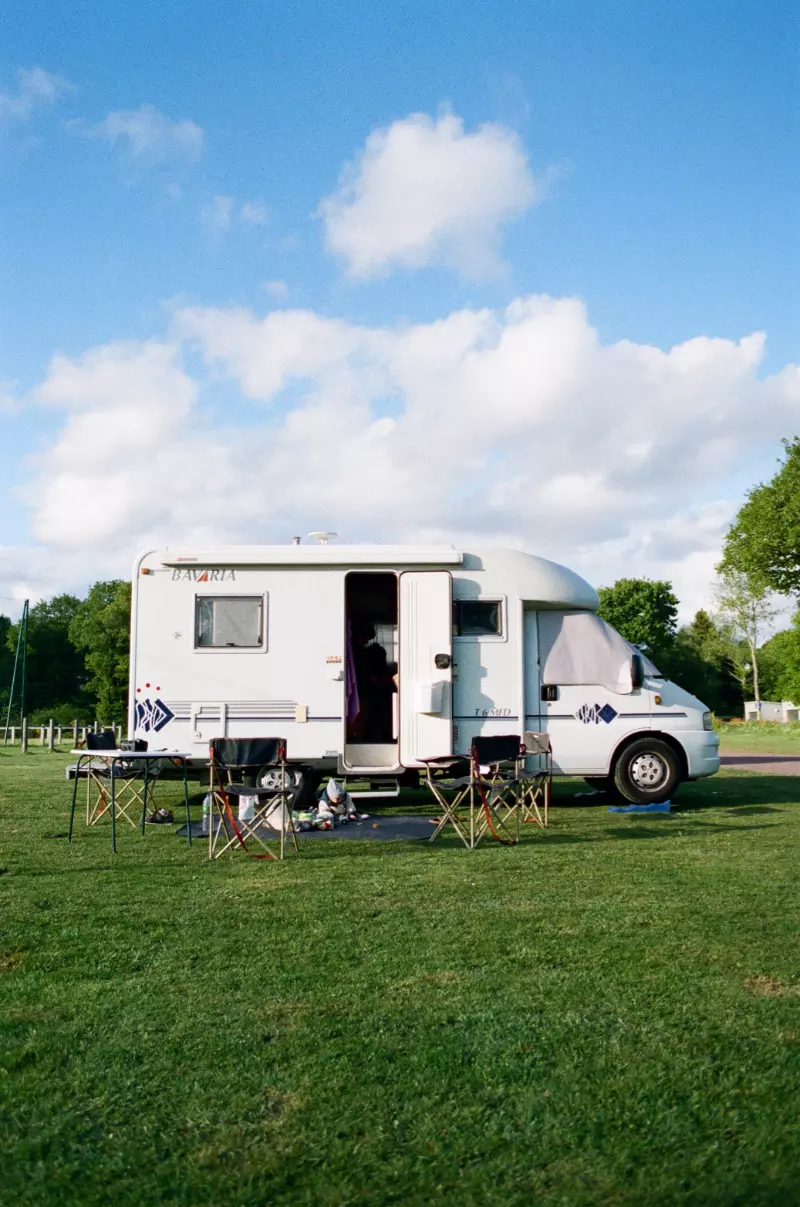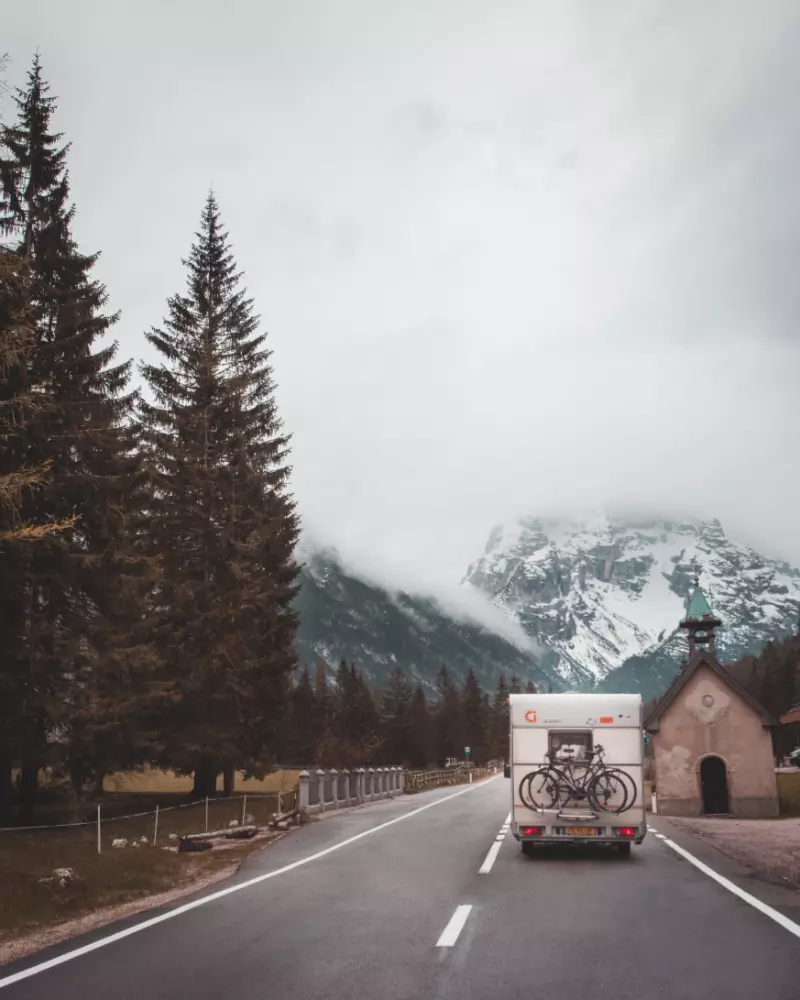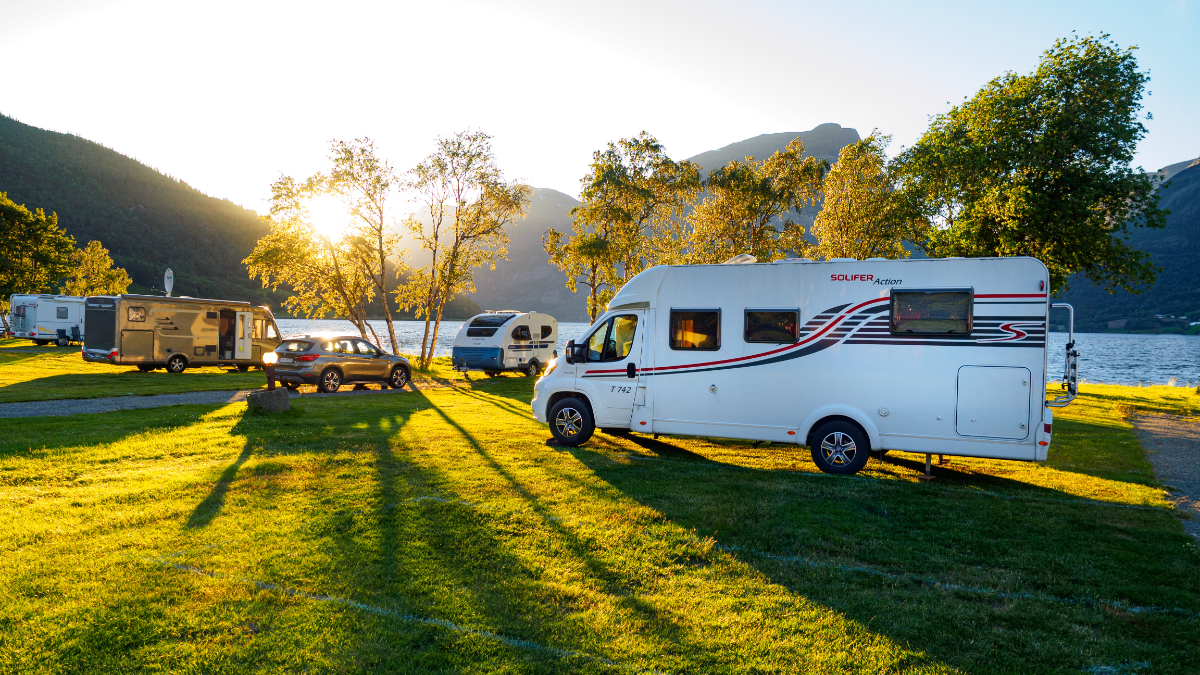You may be asking: can you park a motorhome anywhere UK? This article looks at where you can legally park a motorhome while travelling throughout the UK.
There's a popular misconception amongst those who aren't familiar with free motorhome and campervan travel. This misconception is that if you own one of these vehicles, you can literally turn up wherever you like, set up camp, staying overnight.
Assuming that you can arrive at a location at any time, park up and act as you please is damaging to the wider motorhome and campervan owning public, as it gives us all a bad reputation. Of course, there will always be a small selection of rude and inconsiderate people ruining it for everyone else, and for the most part, motorhome and campervan owners stick to the rules. And for those who don't, it might not be entirely their fault.
Again, this is a popular misconception, so most people will simply be ill-informed or confused about the rules regarding what you can do and where you can stay in your motorhome or campervan. If you feel you might fall into this category of confusion, don't worry, this article will take you through the dos and don'ts about what is and isn't allowed for your touring vehicles.
We'll look at the UK's laws for motorhomes and campervans, alongside where you can park, sleep or even live in your vehicle.
Motorhome & Campervan Parking laws in the UK
The thing that draws most people to own a campervan or motorhome is the freedom they provide. Whenever you feel like it, you can up sticks and head out to explore new places you've never visited before or go on a week-long road trip whenever you have time.
They also allow you to make an overnight stop in remote places, most of them amazing, without having to pay for camping or relying on campsites having enough space to accommodate you. But, again, the biggest problem is knowing where you can park and for how long.
Most motorhome and campervan owners aren't entirely sure if they can park wherever they like or whether it is legal for them to sleep in their vehicles when parked on the road.
It's even tricky knowing where the local authority permits motorhome or campervan overnight parking. So, to settle things once and for all, we'll take you through the laws in the UK, including Scotland, Wales and Northern Ireland, that determine what you are allowed to do in your campervan or motorhome.
Wild Parking Laws in Scotland for Motorhomes & Campervans
The first thing to mention is that not all of the laws regarding motorhomes and campervans are the same throughout the different countries of the UK. Particularly, there are specific differences between legislation and regulations between Scotland and the rest of the UK.
Here are the three main differences in legislation you should be aware of regarding campervan or motorhome wild camping rules.
Scottish Outdoor Access Code
This code determines that wild camping does not include any vehicle use. Therefore, the freedoms that wild campers enjoy in Scotland cannot be shared with those driving and sleeping in motorhomes or campervans.
You do not have any legal rights to park by the side of the road overnight while you sleep, but depending on where you are, it may be permissible by local landowners or local councils.
Land Reform Act 2003
When it comes to parking your recreational vehicles, this is the piece of Scottish legislation that you have to pay close attention to.
Ultimately, you must ensure that you do not cause any damage while you are parked up and that you are not blocking any essential entrances to fields, walking paths, buildings or businesses. You also need to leave any roads or tracks free for other people to access while you park overnight.
Road Traffic Act 1988
According to the Road Traffic Act 1988, you cannot drive your motorhome or campervan on any land that is not a road, footpath or bridleway without explicit permission.
Much like in England and Wales, most land is privately owned, and you will need the landowner's permission if you want to park there. This also goes for verges or lands adjacent to private land. However, you are allowed to drive off-road for a limited time, so long as you remain within 15 yards of a public highway and also have permission to be off the beaten track.
Can I park up anywhere in a motorhome?
The ultimate question any would-be motorhome or campervan enthusiast will have is: can I park anywhere? In a word, no.
If you are not parking in a designated motorhome or caravan park and far from the oft-travelled highways and byways, you'll need to be careful about whose land you find yourself on.
Most land in the UK is owned by someone, so even if you are miles away from civilisation, don't assume you can do whatever you like.
If you are keen to partake in a little wild camping, you'll need to get express permission from whoever owns the land you'll be staying on.
Without this permission, you run the risk of breaking the law and facing the consequences. However, wild camping laws vary throughout the UK, so depending on what country you are travelling in, there are different rules you'll need to follow.
For the most part, wild camping without permission from the land owner is illegal in England and Wales. Again, this is because most land in these countries will be owned by someone.
Things are a little different in Scotland, however. According to the Land Reform Act of 2003 in the Scottish parliament, free camping is allowed on most unenclosed lands for members of the public.

Of course, this reform only grants access rights for non-motorised activity. Therefore, you are all good if you are camping in a tent without parking your car on the unenclosed land. Alternatively, you won't be able to drive your motorhome or campervan onto the land without permission from the landowners, much the same as it is in England and Wales. So, essentially, you can't really park your campervan or motorhome overnight wherever you like. But you could have guessed that already.
Wherever you stop in the UK, that isn't a designated camping site or caravan park; you are going to need permission from the land owner to be there. This is the reason why most motorhome owners get into trouble, thinking they can stop wherever they like. Again, this misconception does have some limited grounding in logic. There are areas within England and Wales, such as the Lake District and many national parks, where you can go wild camping without permission.
But again, this is camping and doesn't involve having a motorised vehicle. And it's the vehicles that are the cause of contention here. When you are wild camping, you are expected to follow the idea of leaving only footprints and maintaining the area in the state that you found it. If you are rocking up with a giant motorhome or campervan, the chances are that you are going to leave at least the odd tyre mark.
This is why landowner permission is needed, as it proves they are fine with you possibly making a bit of a mess on their property. The best way to ensure you are wild camping stay doesn't disrupt the environment or land too much is to keep your stays short. Essentially, the less time you spend in one spot, the less chance you have of ruining the place.
It's best to arrive late at your chosen location and leave early when you are on the move again to keep your stay as undisruptive as possible. For those with motorhomes or campervans, the easiest way to keep yourself on the good side of any landowners is to check with them before you park your vehicle on their land. Finding the owner of the closest establishment is the best way to ensure you aren't going to upset anyone by parking up for the night on any particular piece of land.
Alternatively, if there's no one around that looks like a landowner or has no establishment nearby, it is often best to google the piece of land you have found. This will tell you whether it is public land that you can stay on for a short time or whether it is private, and you'll therefore need the landowner's permission before you pitch your camp.

Can I sleep in a motorhome on the street?
As you might imagine, sleeping in your motorhome on the street falls under similar legal restrictions as where you can camp. Again, it depends on which country within the UK you are travelling in.
However, according to the Caravan Sites & Control of Development Act, alongside other recent legislation covering gipsies and motorhome traveller communities, there are no specific laws that prevent you from sleeping in a motorhome or campervan where there is free overnight parking or at the side of the road.
But don't take this as a sign that you can park and sleep wherever you like. Just because there is no law saying you can't doesn't mean local authorities will be happy with it.
Local police can request that you move your vehicle if it is parked for too long, and all local authorities throughout the UK have full control of their highways, including lay-bys and other stopping or turning spots.
However, if you are OK with being moved on whenever the local police come a-knocking, then you are within your rights to sleep by the side of the road.
If the authorities do appear at your window, you don't have any other choice than to pick up and move on to another spot. But, again, if you're OK with this, then go ahead. Wherever you find free overnight motorhome parking, you should be fine parking up for a nap.
There are ways to avoid attracting the attention of police and authorities when parking by the roadside for some sleep. So long as your vehicle isn't obstructing any business or blocking any essential roadways, you should be able to get some undisturbed kip.
Ensuring you aren't disrupting residential households will also keep you in good stead while you sleep. Much like wild camping, the most important thing about sleeping by the roadside is that you aren't staying around for too long.
Usually, one night over one or two days won't cause too much disruption. But if you are there for too long, usually more than a day, that's when the authorities get involved. So, as long as you are quiet and get moving after a day or so, you should be able to get away with a night's sleep by the roadside in your motorhome or campervan.
While the roadside is just about passable as a place to catch forty winks in your vehicle, public car parks are definitely out of the question. Most car parks are operated by local authorities, with wardens to keep a regular eye on the vehicles parked there and small fees for stays.
The Traffic Regulation Orders (TROs) also cover these areas, meaning sleeping, camping or cooking food is strictly prohibited in public car parks, supermarket car parks, pub car parks and overnight parking spots.
These regulations also limit the classes of vehicles and maximum vehicle weights that are allowed to use public car parks, meaning larger motorhomes or campervans aren't likely to be permitted.
The best way to ensure your stay isn't going to breach any regulations is to read car park signage carefully to see if your vehicle can stay there and to always air on the side of caution if you are unsure about the local rules.
Ultimately, if you want a comfortable night's sleep that won't land you with a fixed penalty notice, you are best to find a local camping site or caravan park. If this isn't possible, then the roadside is possible, or you may want to request permission to camp from a local landowner, as mentioned in the previous section.
Can I live in a motorhome legally?
Unlike the other sections of this article, the question of whether you are allowed to live in your motorhome or caravan is much easier to answer. Yes, it is perfectly legal to live full-time in your vehicle if you so wish. Whether this is on your own private land, designated campsite, or with permission from another landowner, you can pitch your campervan or motorhome wherever you like to live in.
There is no law in UK legislation that prevents you from living out of a motorhome or caravan, but there are still laws regarding the condition of said motorhome or campervan.
If you will be taking your vehicle out regularly onto the roads and highways of the UK, you will have to ensure that it is fully road legal, insured, and MOT'd. As with any other road-going vehicle, this is a legal necessity that can land you in a heap of trouble if you fail to ensure it is all covered.
While it's a romantic notion to take to the roads in your motorhome and live your life on the road, there are plenty of practical challenges that become much harder compared with traditional living. There are numerous online blogs and videos about this lifestyle, and you should definitely familiarise yourself with this style of living before diving in. While it's a tough way to live, it can be incredibly rewarding and exciting for those eager to try it.
Are you looking for motorhome towbar fitting in Lincoln And Lincolnshire? We have a huge range of motorhome towbars available and would love to discuss this with you.

